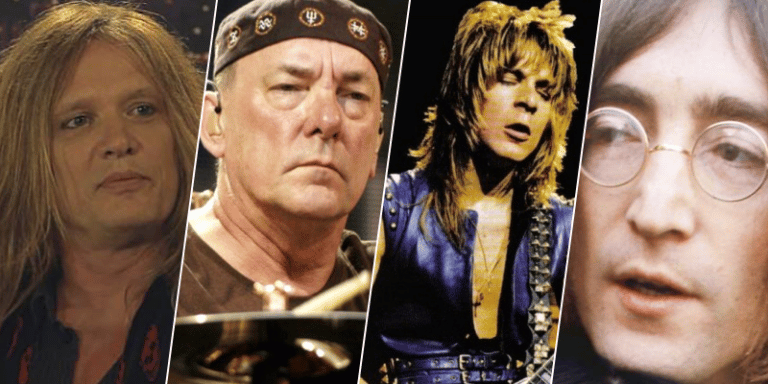The Top 10 Songs Alex Lifeson Picked As His Favorites Of All Time

Alex Lifeson‘s musical journey began in his early teenage years, ultimately leading him to become one of the most influential and celebrated guitarists in rock history. Since then, he has been creating music to make himself a better musician, with or without his band Rush. In this article, we will reveal the songs that Alex Lifeson named his favorites of all time and why they were important for Rush‘s sound.
Lifeson‘s career took flight when he co-founded Rush in 1968 alongside bassist and lead vocalist Geddy Lee and drummer John Rutsey. The band quickly gained traction, thanks to their unique fusion of progressive rock, hard rock, and heavy metal elements. Lifeson‘s distinctive guitar style, characterized by intricate arpeggios, complex time signatures, and soaring solos, became an integral part of Rush’s sound.
Throughout their extensive career spanning over four decades, Rush released numerous critically acclaimed albums that showcased Lifeson‘s virtuosity and innovative guitar work. Beginning with their self-titled debut album in 1974, Rush went on to produce iconic records such as 2112, Moving Pictures, and Permanent Waves. These albums not only solidified Rush‘s status as a progressive rock powerhouse but also established Lifeson as a guitar virtuoso.
Lifeson‘s playing style is characterized by his ability to seamlessly blend intricate fingerpicking techniques with powerful chords and soaring solos. His unique approach to guitar playing, influenced by a wide range of musical genres and artists, has garnered him a devoted following and the admiration of fellow musicians worldwide. Lifeson‘s versatility is evident in Rush‘s music, as he effortlessly transitions from melodic and introspective passages to thunderous riffs and blistering solos, captivating audiences with his exceptional musicianship.
So, let’s learn the songs Alex Lifeson named his favorites of all time.
The 10 Songs Alex Lifeson Named His Favorites Ever
In 2009, Alex Lifeson sat with Guitar World to name the songs that shaped Rush‘s sound throughout its career. In his list, Alex Lifeson picked classic Led Zeppelin songs, along with Jimi Hendrix and Jeff Beck songs. However, it is time to see the complete list of Alex Lifeson’s favorite songs.
#10. The Rolling Stones – (I Can’t Get No) Satisfaction
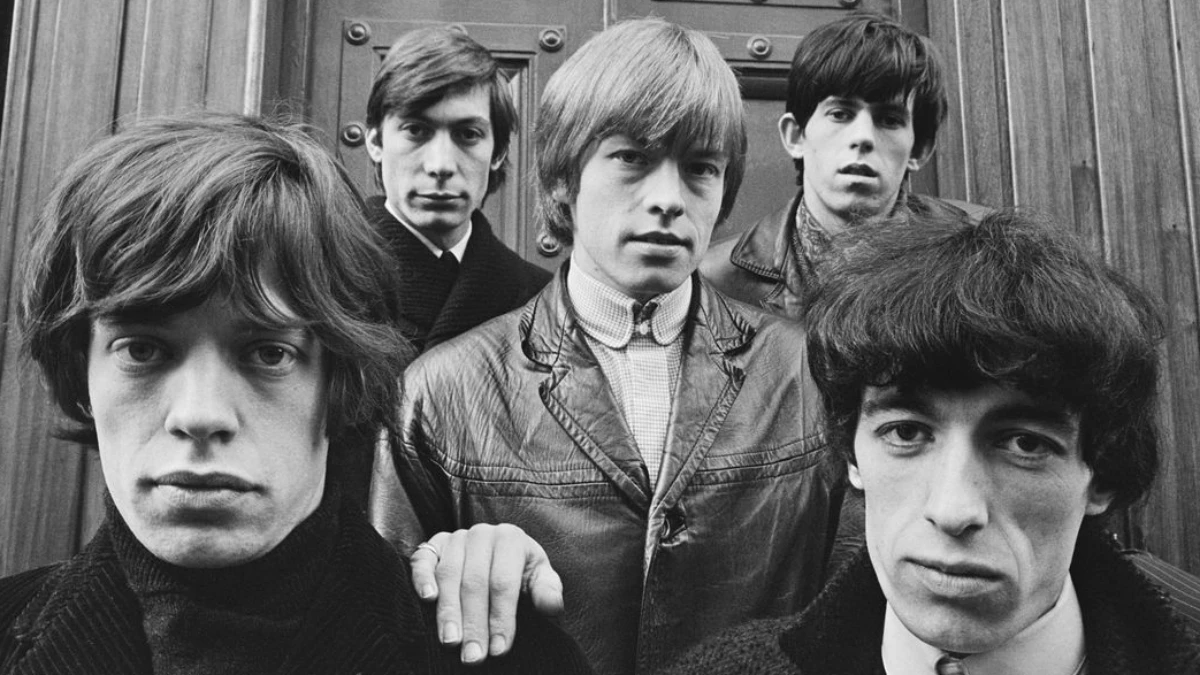
Unleashing an unrivaled swagger and a rebellious attitude that defined an entire generation, The Rolling Stones unleashed their timeless anthem (I Can’t Get No) Satisfaction upon the world, forever etching their name in the annals of rock ‘n’ roll history. With its iconic guitar riff, infectious melody, and provocative lyrics, this seminal track stands as a testament to The Stones‘ unparalleled ability to capture the zeitgeist and revolutionize the music landscape.
Penned by Mick Jagger and Keith Richards, the dynamic duo at the helm of The Rolling Stones‘ creative powerhouse, (I Can’t Get No) Satisfaction emerged during a pivotal moment in the band’s career. Released in 1965, this revolutionary song not only propelled The Stones to international stardom but also signaled a shift in the cultural climate of the 1960s, challenging societal norms and fueling the fire of youth rebellion.
To talk about why he liked the song, Lifeson said: “This was the second single I bought. The Stones had that bluesy, dirty, bad-boy image, which I much preferred to cleaner-sounding bands like the Beatles or the Searchers. The Stones were more dangerous than other bands of the ’60s. It looked like they had more fun than the Beatles – like they stayed up later.”
#9. Pink Floyd – Comfortably Numb
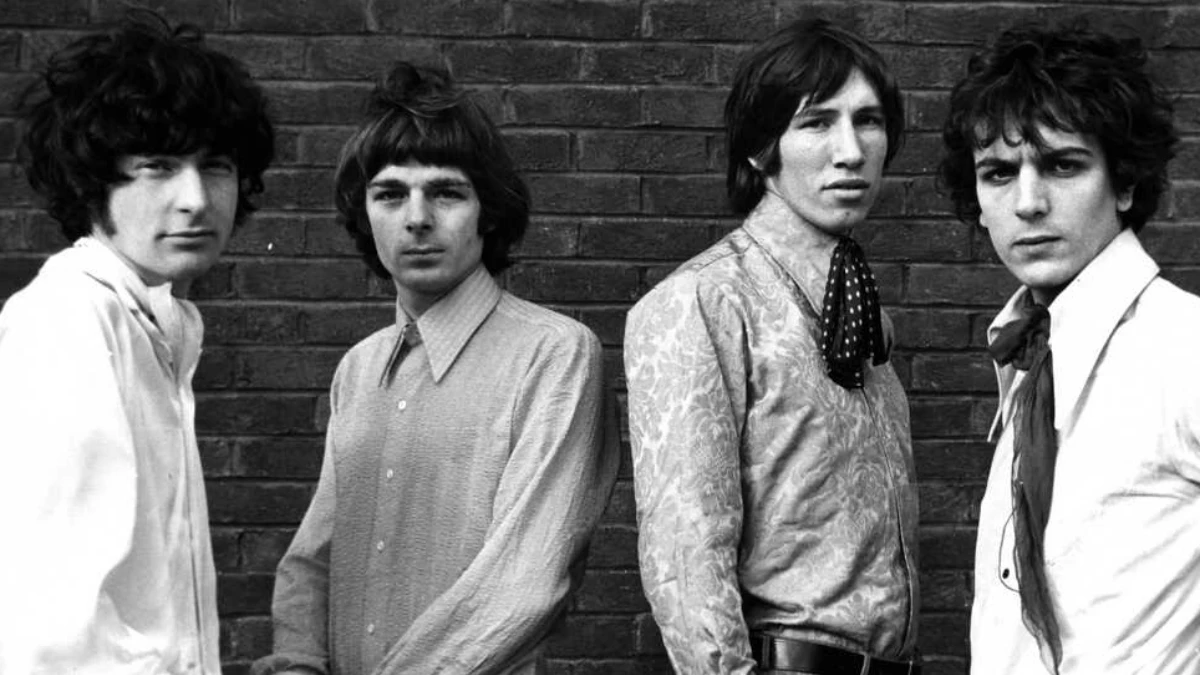
Released in 1979 as part of Pink Floyd‘s magnum opus, The Wall, Comfortably Numb was born from the collective genius of Roger Waters and David Gilmour. The song is an emotional voyage that delves into themes of isolation, emotional detachment, and the struggle to maintain one’s humanity in the face of overwhelming adversity.
Opening with a delicate, ethereal guitar arpeggio, Comfortably Numb slowly unfolds its sonic tapestry, drawing listeners into its melancholic embrace. Gilmour’s emotive vocals, combined with Waters’ introspective and introspective lyrics, create a haunting atmosphere that permeates every note of the song.
However, it is Gilmour’s transcendent guitar work that truly elevates Comfortably Numb to legendary status. The song features not one but two mesmerizing guitar solos that have become the stuff of rock ‘n’ roll folklore. The first solo, affectionately known as the Pulse Solo, emerges towards the track’s latter half, searing through the sonic landscape with its raw intensity and emotive power. Gilmour’s delicate touch, impeccable phrasing, and ability to evoke a profound emotional response through his instrument make this solo an awe-inspiring moment in music history.
During the interview, Lifeson praised Pink Floyd and said they every time write rich and complex songs: “Pink Floyd have such incredible arrangements; their songs are rich and complex but not particularly complicated. They can take as long as they want to tell you a story, but it’s always interesting.”
#8. Jimi Hendrix – Are You Experienced?
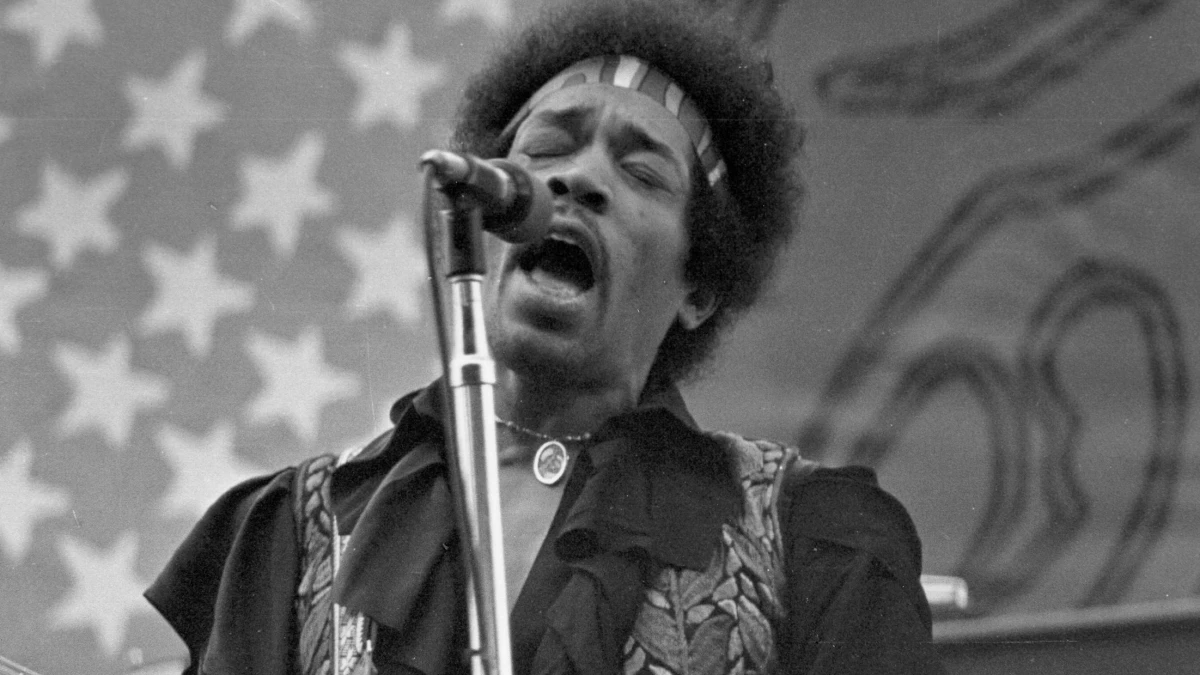
Alex Lifeson also named Are You Experienced? by Jimi Hendrix, one of his favorite songs. Released in 1967 as the title track of his debut album, Are You Experienced? served as Jimi Hendrix‘s bold declaration of arrival. It catapulted him into the spotlight, solidifying his status as a guitar deity and pushing the boundaries of what was thought possible in the realm of rock music.
One of the defining features of Are You Experienced? is the innovative use of studio techniques and effects. Hendrix, alongside producer Chas Chandler, employed techniques such as backward tape loops, panning effects, and the iconic wah-wah pedal to create a sonic landscape that was both ethereal and groundbreaking. These studio wizardries, combined with Hendrix‘s prodigious guitar skills, gave birth to a new sonic language that expanded the possibilities of rock music.
Alex Lifeson showed his admiration for Jimi Hendrix after he picked the song. According to him, he was a talented guitarist.
“Jimi Hendrix was a natural genius who played many beautiful styles,” he says. “Talent as great as his doesn’t come through life very frequently. Hendrix was one in a billion.”
#7. The Who – My Generation
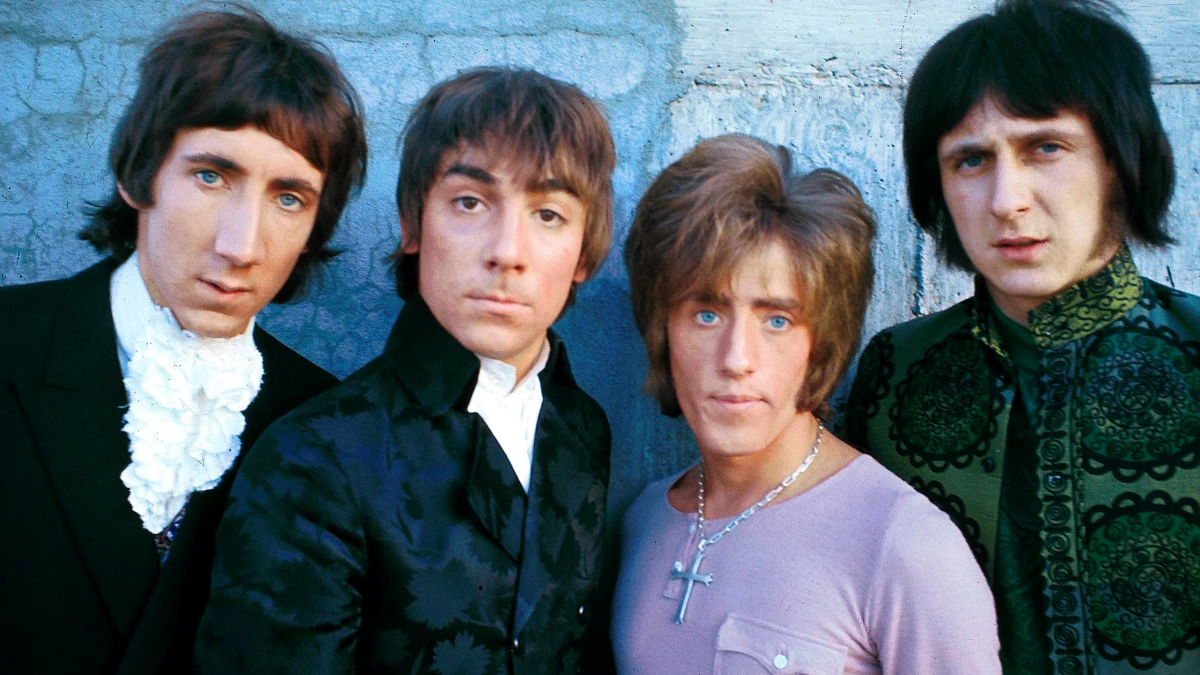
Released in 1965 as the title track of their debut album, My Generation instantly catapulted The Who to the forefront of the British rock scene and solidified their reputation as one of the most influential bands in history. The song’s sheer intensity, propelled by the distinctive vocal delivery of frontman Roger Daltrey, created a seismic impact that resonated with countless young listeners who were eager to break free from societal constraints.
The song was Daltrey’s defiant vocals that truly ignited the fire within My Generation. His gritty and impassioned delivery perfectly captures the frustrations, dreams, and aspirations of a generation grappling with their place in a rapidly changing world. The song’s lyrics, characterized by a rebellious and confrontational attitude, boldly proclaim the frustrations and discontentment of youth, serving as a rallying cry for those who felt misunderstood and marginalized.
Lifeson revealed The Who guitarist Pete Townshend’s impact on the song, saying: “Pete Townshend’s chording and strumming always took up the right amount of space. The first time I heard this song was in the basement of Rush’s original drummer, John Rutsey.”
#6. Jeff Beck – Shapes of Things

Originally released in 1966 as a single with The Yardbirds, Shapes of Things showcased a new direction for both the band and Jeff Beck himself. The song emerged during a period of experimentation and musical exploration, and it was Beck‘s virtuosic guitar playing that became the driving force behind its revolutionary sound.
From the opening chords, Shapes of Things commands attention. Beck‘s distinctive guitar tone, a product of his innovative use of a fuzz box and feedback, instantly sets the stage for the sonic journey about to unfold. His fiery and emotive playing, characterized by blistering solos and inventive phrasing, mesmerizes listeners and serves as a testament to his technical prowess and ability to push the boundaries of what was thought possible on the instrument.
Speaking about the song’s greatness, Lifeson said: “Jeff Beck has a tone like no one else, maybe because he doesn’t play with a pick very much. He also has a very strong left hand and can move the strings almost effortlessly.”
#5. Jimi Hendrix – All Along the Watchtower
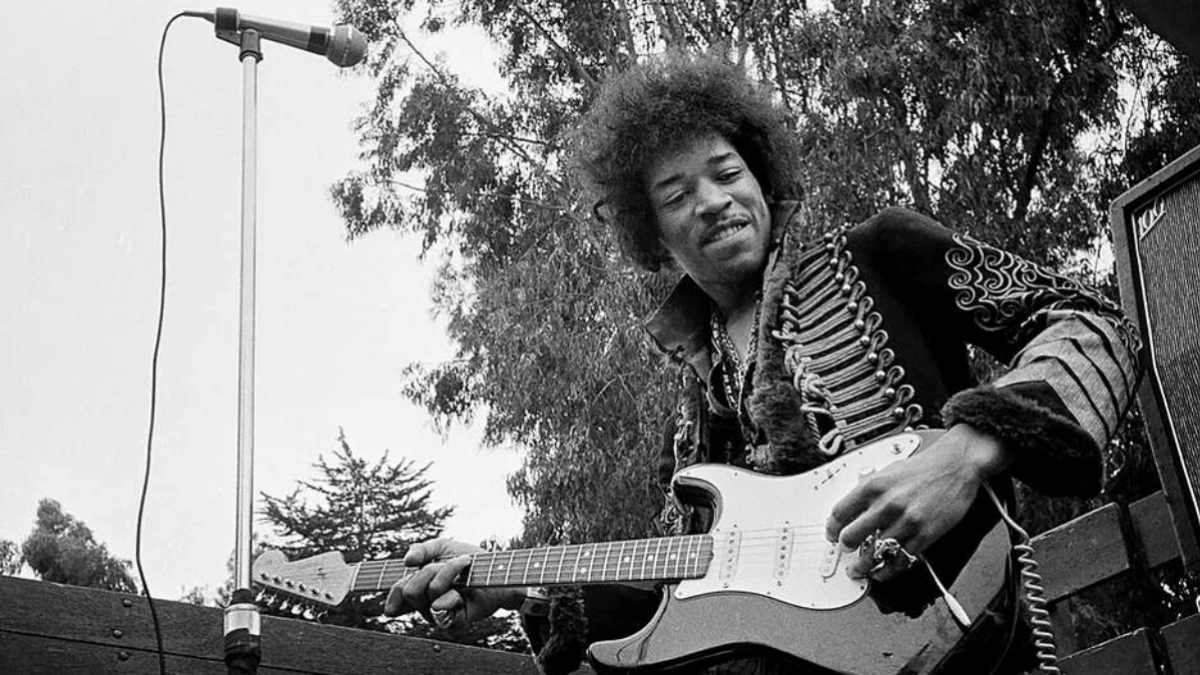
Born in 1942, the prodigious guitarist and songwriter Jimi Hendrix revolutionized the world of rock and roll, leaving an indelible imprint on generations to come. Among his vast repertoire, one track stands out as a timeless masterpiece, resonating with fans across eras and genres: All Along the Watchtower.
Hendrix‘s rendition of All Along the Watchtower takes Dylan’s folk ballad and transforms it into an electrifying anthem of rebellion and liberation. The song’s arrangement, propelled by a pulsating rhythm section and Hendrix‘s distinctive guitar licks, captures the essence of the era’s counterculture movement. It becomes a sonic battlefield, where the boundaries between genres blur and the spirit of rock and roll find its ultimate expression.
According to Lifeson, the song was one of the great songs in rock music: “This is one of the most beautiful songs and arrangements ever recorded. Hendrix took a Bob Dylan folk song and turned it into a symphony. The acoustic guitar on this song has such beautiful compression.”
#4. Led Zeppelin – How Many More Times
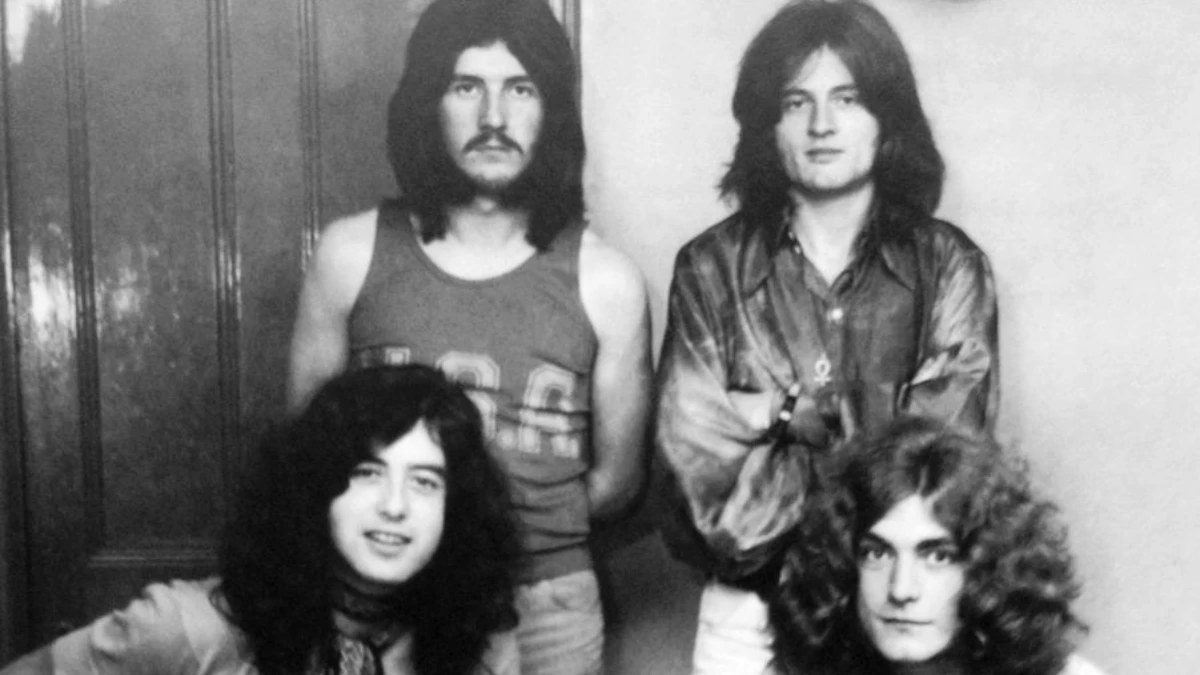
One of Led Zeppelin‘s songs that Alex Lifeson named was How Many More Times. First released in 1969 as part of their eponymous debut album, How Many More Times captures the essence of Led Zeppelin‘s unyielding sonic prowess. The song unfolds like a sonic odyssey, taking listeners on a wild and unpredictable journey through the depths of rock and blues.
At the heart of How Many More Times lies the interplay between each band member’s virtuosity. Jimmy Page‘s guitar work is nothing short of spellbinding, effortlessly weaving intricate riffs and searing solos that become the lifeblood of the composition. John Bonham’s thunderous drumming propels the song forward with an unrelenting force, while John Paul Jones’s masterful bass lines provide a solid foundation that anchors the entire arrangement.
Picking Led Zeppelin‘s How Many More Times as one of his favorites, Lifeson said: “Of any guitarist, Jimmy Page was my biggest influence. I wanted to look, think and play like him. Zeppelin had a heavy influence on Rush during our early days. Page’s loose style of playing showed an immense confidence, and there are no rules to his playing.”
#3. Tool – Third Eye
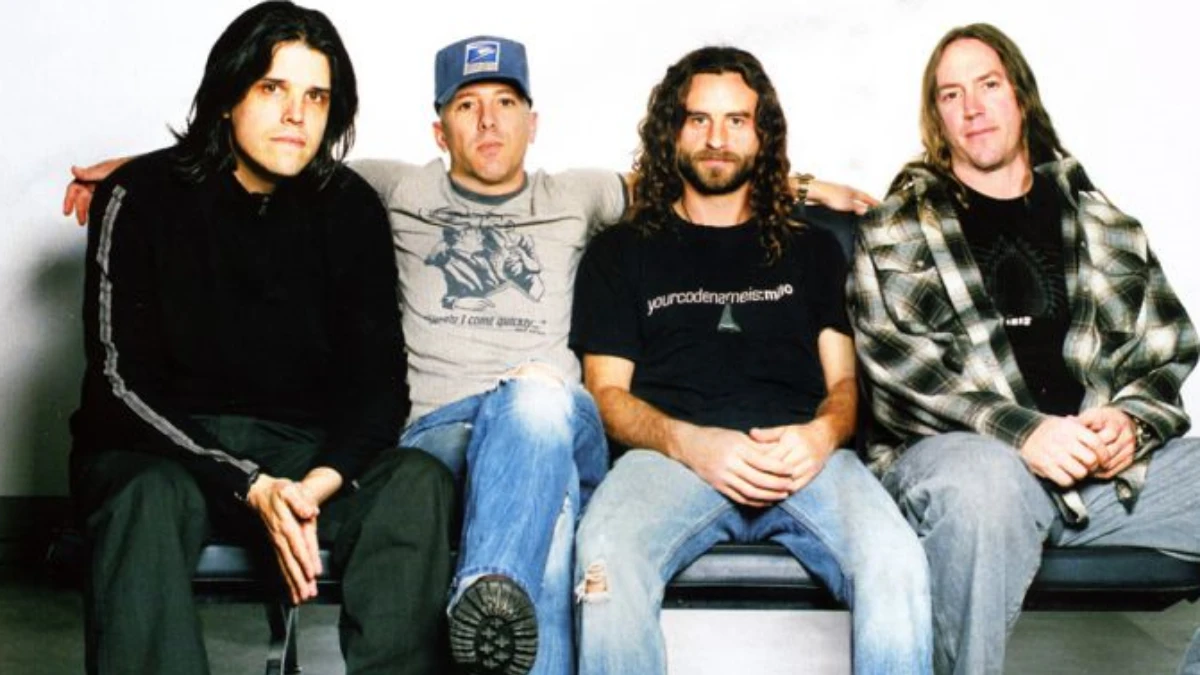
From the opening moments, Third Eye immerses the listener in a swirling sea of sonic textures. The band’s virtuoso musicianship shines through with Adam Jones’s atmospheric guitar riffs, Danny Carey’s hypnotic drumming, Justin Chancellor’s intricate basslines, and Maynard James Keenan’s ethereal vocals. The synergy between these four musicians creates an intricate tapestry of sound that resonates with both intensity and tranquility.
Beyond its musical and lyrical brilliance, Third Eye takes on new dimensions in Tool’s live performances. Known for their captivating stage presence and extended improvisational sessions, Tool transforms the song into an immersive and transcendental experience. The band’s ability to navigate uncharted musical territories and create spontaneous moments of musical synergy allows each live rendition of Third Eye to become a unique and mind-altering journey for both the performers and the audience.
Alex Lifeson described Tool‘s song as interesting, saying: “Tool have an interesting, intelligent approach to song construction and lyrics. It’s just too bad we don’t hear from them more often.”
#2. Led Zeppelin – Kashmir
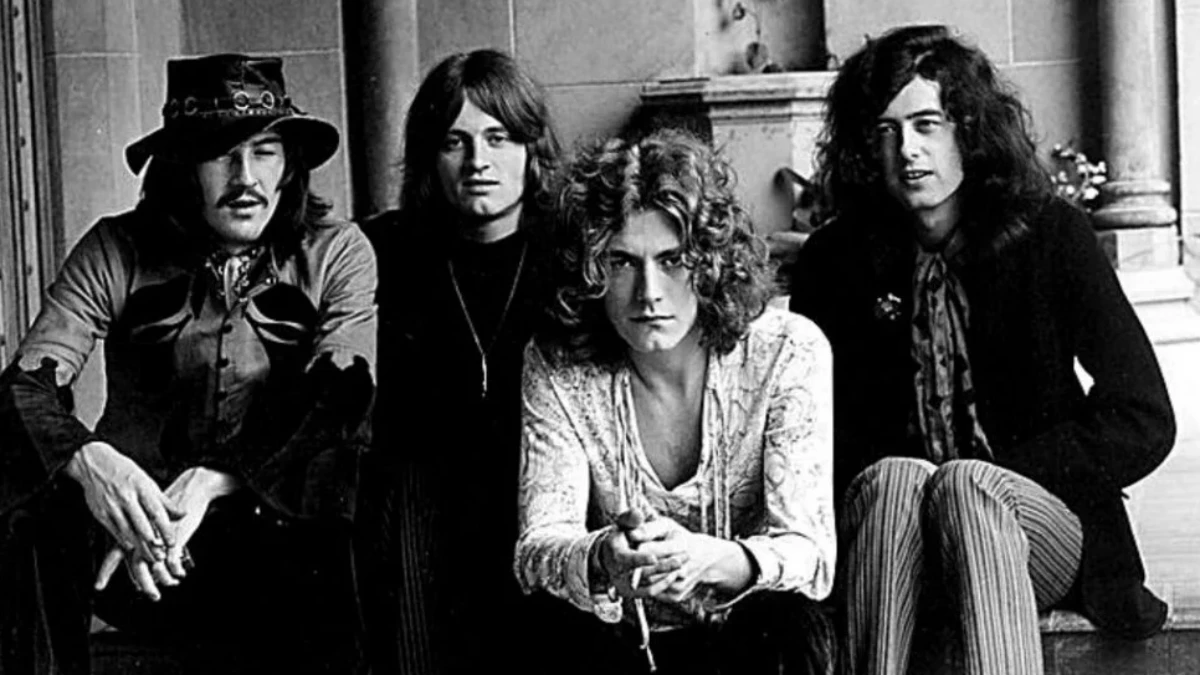
Robert Plant‘s vocal performance in Kashmir is nothing short of extraordinary. His voice soars with an ethereal quality, perfectly complementing the song’s mystical atmosphere. Plant‘s evocative lyrics, inspired by his travels in the Moroccan desert, evoke a sense of longing, adventure, and introspection. His delivery is imbued with a raw passion that transports the listener into the very heart of the song’s narrative, traversing vast landscapes and encountering the unknown.
Decades after its release, Kashmir remains a testament to Led Zeppelin‘s status as rock music titans. Its impact on popular culture is immeasurable, with its distinct sound and epic scope influencing countless artists across genres. Its enduring appeal lies in its ability to transport listeners to a realm where the boundaries of reality dissolve, where music becomes a transcendent force that unites and uplifts.
Alex Lifeson named Led Zeppelin’s Kashmir an all-time great song: “This is an absolutely brilliant song, an all-time classic. ‘Kashmir’ has such a wonderful, exotic Middle Eastern feel to it – it’s like no other song of its era – and Physical Graffiti is a mind-blowing album.”
#1. Buffalo Springfield – For What It’s Worth
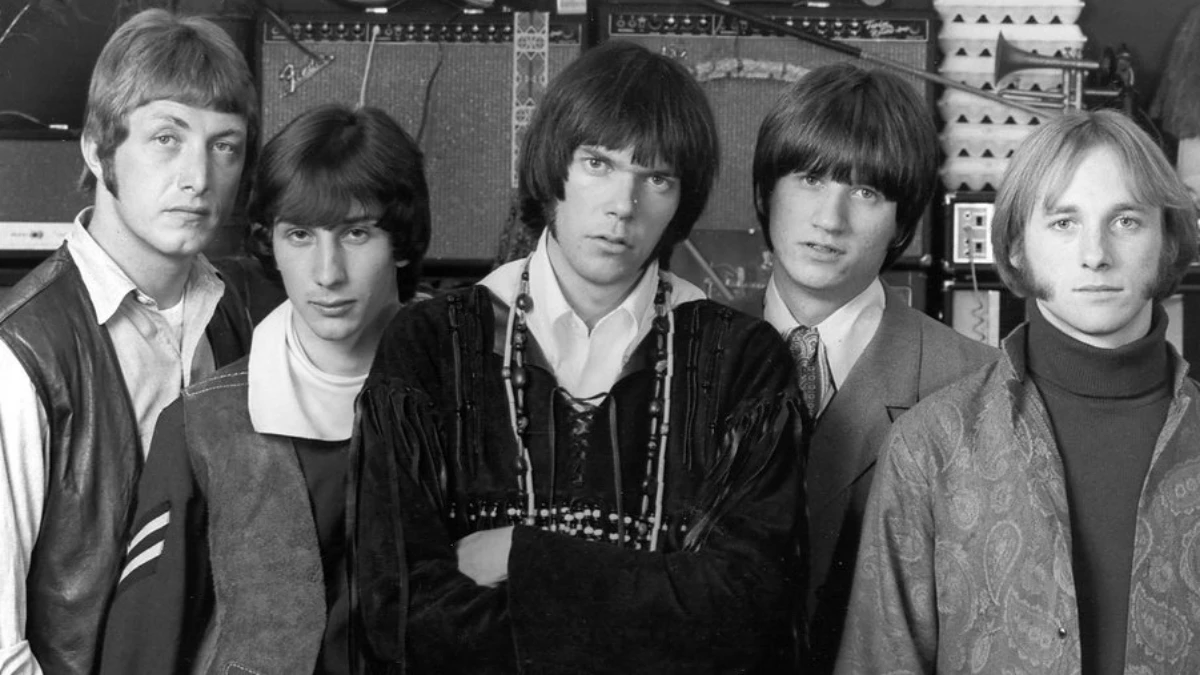
From its humble beginnings, For What It’s Worth emerged as a poignant response to the turbulent social and political climate of the era. Against a backdrop of civil unrest, the song struck a chord with listeners, capturing the frustration, disillusionment, and yearning for change that permeated society.
The song’s opening guitar riff, crafted by Stephen Stills, is instantly recognizable and sets the tone for the message that follows. It is a simple yet powerful melody that reverberates with a sense of urgency, immediately drawing listeners into the heart of the song. From there, the collective harmonies of Buffalo Springfield, led by the soulful vocals of Richie Furay and Stephen Stills, further amplify the song’s emotive impact.
For What It’s Worth not only resonated with its immediate audience but also became an anthem for subsequent generations, transcending its original context. Its timeless message of social consciousness and the importance of challenging authority has allowed the song to remain relevant across decades of societal change.
Rush legend admitted Buffalo Springfield‘s For What It’s Worth was the first song that influenced him.
“This was the first rock song that had a big influence on me,” he said. “I remember hearing it on the radio in my dad’s car when I was a kid. Buffalo Springfield were unlike the other bands of the ‘San Francisco sound’; they were more country sounding. Stephen Stills and Neil Young trade leads on this one.”
Alex Lifeson’s Favorite Songs:
- Buffalo Springfield – For What It’s Worth
- Jimi Hendrix – Are You Experienced?
- Tool – Third Eye
- Led Zeppelin – Kashmir
- Jimi Hendrix – All Along the Watchtower
- Led Zeppelin – How Many More Times
- Jeff Beck – Shapes of Things
- The Who – My Generation
- Pink Floyd – Comfortably Numb
- The Rolling Stones – (I Can’t Get No) Satisfaction





